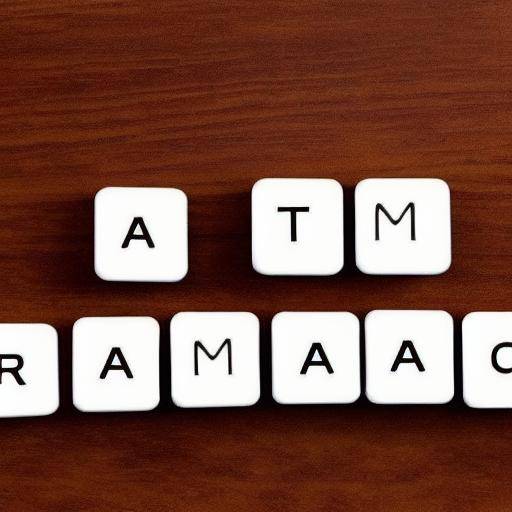
Gratitude is a powerful emotion that can have a significant impact on our mental well-being and our ability to manage stress. Throughout history, gratitude has been regarded as a fundamental virtue in many cultures and traditions, and its positive effect on mental health has been studied in modern psychology. In this article, we will explore in depth the impact of gratitude on stress reduction, its relationship with mental well-being and strategies for its management.
Introduction
The relationship between gratitude and stress has been a topic of growing interest in the scientific and psychological community. In a world where stress has become one of the main concerns for mental health, understanding how gratitude can act as a shock absorber against stress is essential. In this article we will address both the history and the background of gratitude, and its impact on stress reduction and its relationship with mental well-being. In addition, we will provide practical advice, case studies and expert ideas to better understand this topic.
Background and History
Gratitude has been regarded as a fundamental virtue in many cultures throughout history. From ancient philosophical teachings to religious traditions, gratitude has been promoted as an essential quality for emotional and spiritual well-being. In the modern era, positive psychology has generated renewed interest in gratitude, with research that demonstrates its positive effects on mental health and stress management.
We will explore the historical milestones and the evolution of gratitude as a concept, from its roots in ancient philosophy to its systematic study in contemporary psychology. We will examine how different cultures and traditions have addressed gratitude, highlighting its importance over time.
Gratitude in Philosophy and Religion
The philosophical and religious teachings of various cultures have highlighted the importance of gratitude. For example, Greek philosophers such as Epicuro and Seneca considered gratitude as an essential virtue for a happy life. In religious traditions, gratitude is a recurring theme; in Christianity, Islam and Hinduism, the importance of giving thanks and recognizing blessings is emphasized.
Positive Psychology and Gratitude
In recent decades, positive psychology has begun to study gratitude systematically. Researchers such as Martin Seligman and Robert Emmons have shown that regular practice of gratitude can significantly improve emotional well-being, reduce stress levels and increase satisfaction with life.
Analysis in Deep
In examining gratitude in the modern context, it is essential to consider scientific research that supports its impact on stress reduction and the promotion of mental well-being. We will analyze the concrete benefits of gratitude, such as improving emotional resilience, reducing anxiety and fostering an optimistic attitude. In addition, we will address the challenges and limitations in the daily practice of gratitude, including the experiences that have shown difficulties in their incorporation into everyday life.
Benefits of Gratitude in Stress Reduction
- Improvement of Emotional Resilience: Gratitude strengthens our ability to recover from stressful situations by focusing on the positive aspects of our lives.
- Reduction of Anxiety: Practicing gratitude can lower the levels of anxiety by shifting the focus from concerns to the good things we already have.
- Promoting Optimism: Gratitude helps us to adopt a more positive and hopeful perspective on the future.
- Improving Interpersonal Relations: Expressing gratitude strengthens our relationships by promoting feelings of appreciation and connection.
Challenges in Gratitude Practice
- Consistency: Maintaining a regular practice of gratitude can be difficult, especially in times of stress.
- Authenticity: Gratitude must be sincere to be effective; forcing it can generate resistance.
- Personal adaptation: Not all people respond in the same way to practices of gratitude, so it is important to find methods that adapt to individual needs.
Comprehensive review
In this segment, we will focus on practical applications of gratitude for stress management. We will provide study cases and good practices that demonstrate how gratitude can be integrated into everyday life to promote mental well-being and reduce the impact of stress. We will compare different approaches and methods for the practice of gratitude, evaluating their effectiveness and adaptability to different contexts and personalities.
Gratitude Practices
- Gratitude Journal: Keep a journal where things are written for which we are grateful every day.
- Gratitude Letters: Write letters of thanks to people who have had a positive impact on our lives.
- Gratitude Meditation: Practice meditations focused on gratitude to improve full attention and calm.
Cases of Study and Real Examples
- Companies: Organizations that implement gratitude programs report more satisfied employees and less staff rotation.
- Education: Schools that teach gratitude to students observe improvements in the school environment and in academic performance.
- Mental Health: Therapies that include gratitude practices show a significant reduction in symptoms of depression and anxiety.
Practical Tips and Concrete Actions
To translate theoretical knowledge into concrete actions, we offer practical advice and concrete actions to cultivate gratitude in everyday life. We will use numbered lists and detailed steps to highlight the specific steps that readers can follow to incorporate gratitude into their routine, as well as detailed explanations of the theoretical foundations that support these recommendations.
Tips to Practice Gratitude
- Establish a Daily Routine: Dedicate a few minutes each day to reflect on the things we are grateful for.
- Being Specific: Instead of generalities, focus on specific details that generate gratitude.
- Share Gratitude: Express orally or in writing our gratitude to other people.
- Reflecting on Overdue Challenges: Recognizing and thanking the difficult moments that have taught us valuable lessons.
Perspectives of Industry and Expert Reviews
In addition to presenting practical advice, it is essential to incorporate expert opinions in the field of psychology, mental health and stress management. These perspectives will enrich the reader's understanding of the impact of gratitude on stress reduction, as well as future trends and forecasts in this area. Interviews with experts and the opinions of opinion leaders will provide a broader and more up-to-date view on the subject.
Opinions of Experts
- Psychologists: Positive psychology experts share how gratitude can change our brain chemistry and improve our well-being.
- Industry leaders: Human resources directors and executive coaches explain how gratitude improves the working environment and productivity.
- Researchers: Scientists present recent data and findings on the effects of gratitude on mental and physical health.
Cases of Study and Applications in Real Life
Case studies are an invaluable tool to illustrate how gratitude can influence stress reduction in real situations. We will analyze specific examples of individuals, companies or organizations that have integrated gratitude into their daily practices and have experienced a significant decline in stress levels.
Examples of Success cases
- Gratitude Programs in Companies: Companies that implement gratitude programs observe an improvement in employee well-being and a reduction in stress.
- Support groups: Communities that practice gratitude together report greater cohesion and mutual support.
- Individuals: Personal stories of people who have transformed their lives through the practice of gratitude.
Future Trends and Predictions
In conclusion, we will explore new trends related to gratitude, stress and mental well-being. Based on current data and expert opinions, we offer predictions about the future role of gratitude in stress management and its possible impact on society and mental health. In addition, we will discuss the challenges and opportunities that may arise as we advance in understanding and applying gratitude in the context of modern stress.
Future Directions in Gratitude Practice
- Integration with Technology: Digital applications and platforms that facilitate the practice of gratitude and the monitoring of its impact.
- Education and Training: Inclusion of gratitude in educational and vocational training programmes.
- Continuing research: New studies that explore the connections between gratitude, neuroscience and mental health.
Conclusions and FAQs
Conclusions
In conclusion, we will synthesize the key points of the article, reinforcing the value of the information provided and encouraging readers to
implementing gratitude in their lives as a tool to reduce stress and promote greater mental and emotional well-being.
Frequently asked questions
To address common concerns about gratitude, stress and mental well-being, we will present several frequent questions and provide detailed and insightful answers. These responses will address different aspects or nuances of the topics discussed, giving readers a deeper and wider understanding.
**1. What is gratitude?**Gratitude is the recognition and appreciation of the positive aspects of our life, whether people, experiences or material things.
**2. How can gratitude reduce stress?**Gratitude helps change our approach to the positive, which can reduce anxiety and improve our emotional well-being.
**3. What are some practical ways to practice gratitude on a daily basis?**Keeping a journal of gratitude, writing letters of gratitude, and reflecting on the positive moments of the day are effective ways of practicing gratitude.
**4. Is it effective gratitude for all?**Gratitude can benefit most people, but it is important to find methods that adapt to individual needs and personalities.
**5. How can I incorporate gratitude into my daily routine?**Establishing a daily routine to reflect on what you appreciate, sharing your gratitude with others and using gratitude applications can help incorporate this practice into your life.
In short, this article aims to provide a comprehensive and up-to-date view on the effects of gratitude on stress reduction, its relationship with mental well-being and strategies for its management. By incorporating scientific evidence, practical advice and expert opinions, we seek to offer our readers a comprehensive guide that inspires them to integrate gratitude into their lives to improve their emotional well-being.






















































